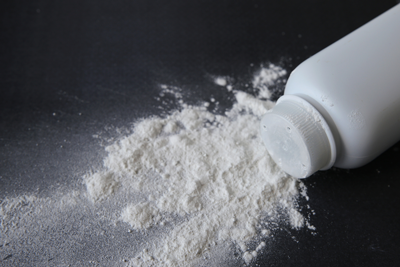Published on Tuesday, May 3, 2016 by Staff

On May 2, 2016, a little over 2 months since the last verdict, a St. Louis jury found Johnson & Johnson failed to warn consumers about the risk of developing ovarian cancer associated with a woman’s genital use of its talc-containing powders. The case was brought against Johnson & Johnson and talc supplier Imerys Talc America by Gloria Ristesund, a 62 year-old South Dakota woman who used Johnson’s talc-containing powders for approximately 40 years and was diagnosed with endometrioid ovarian cancer in 2011. Imerys Talc America was not found liable.
The jury awarded Ms. Ristesund $5million in compensatory damages and $50million in punitive damages. In most states, punitive damages can be awarded by juries and judges when a defendant’s conduct was reckless or when it otherwise acted without due regard for the consequences of those actions. According to evidence introduced during the trial, Johnson & Johnson has had information about the link between its talc-containing powders and ovarian cancer for over 40 years yet, to this day, has not placed a warning on any of its talc-containing powders.
Despite these jury verdicts, Johnson & Johnson continues to deny that its talc-containing powders can cause ovarian cancer and continues to sell these powders without any warning about a woman’s risk of developing ovarian cancer from their use in her genital area. Since these powders are consumer goods sold without a prescription, the authority of the FDA to require such a warning is severely limited. In such cases, the decision to include a warning rests with the manufacturer/seller and, in the face of reasonable scientific evidence signaling such a risk, requires a choice between consumer safety/freedom of choice on the one hand, and protection of profits/market share on the other.